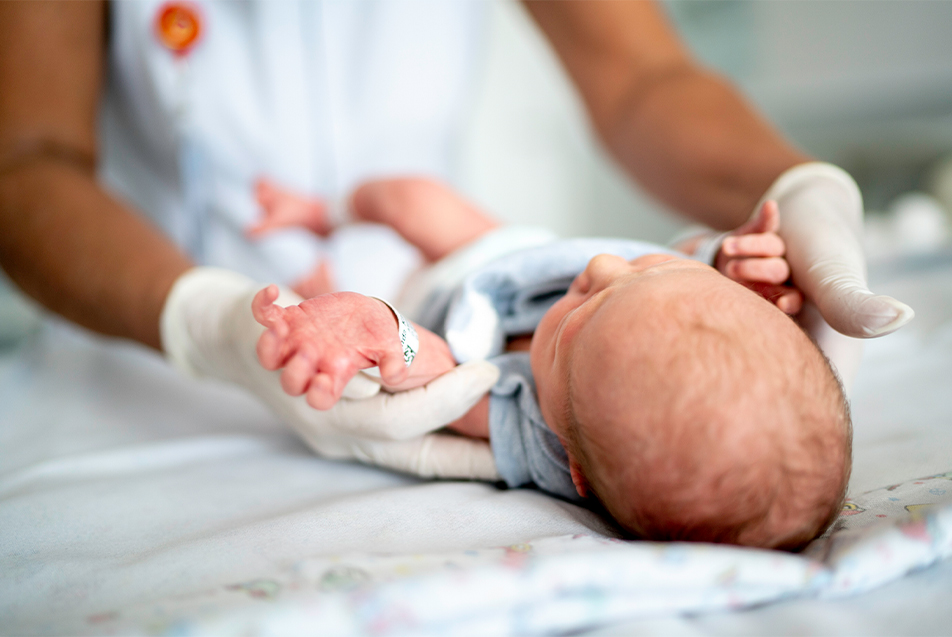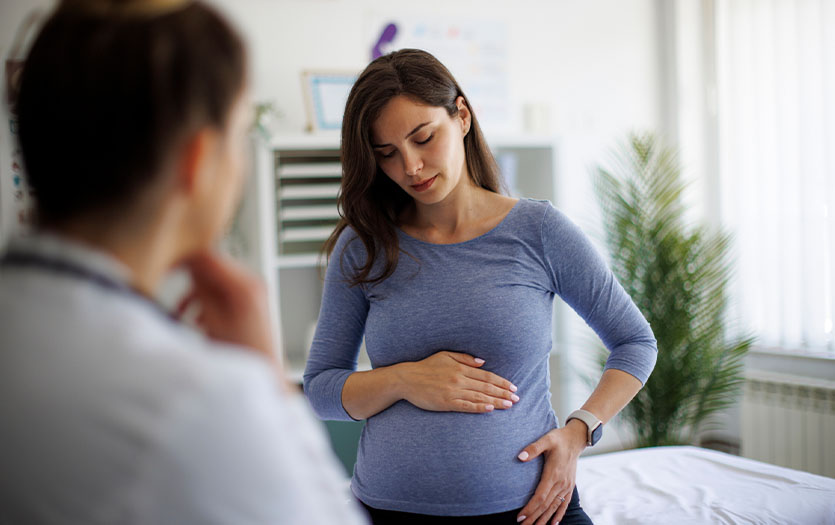
From the moment a baby is born they must undergo a series of tests, including newborn screenings, to ensure their development and overall health are in check. We invited Denise Gilham, NP, PPG – Pediatric Pulmonary & Critical Care, to share what parents can expect with this process, what newborn screenings entail, and why they’re essential for the health and well-being of all children.
What are newborn screenings?
Newborn screenings include a simple blood spot test or heal stick, a hearing screening and a pulse oximetry test that help identify conditions that can affect a child’s long-term health. These screenings are part of a public health program or service. They are done in each U.S. state and funded by the health department. The newborn screening program here in Indiana tests for over 50 conditions (genetic, endocrine, metabolic, hearing loss, congenital heart defects, etc.) that could affect a newborn.
Why are newborn screenings so important?
Newborn screenings are crucial in the early detection, diagnosis and intervention of a condition or disorder. Sometimes babies can appear healthy when born, and a condition will go unnoticed or undiagnosed. Those children could experience severe ramifications for the rest of their lives. Fortunately, these screenings and tests can go a long way in preventing this occurrence and allow these children the chance to thrive.
When should newborn screenings occur?
Newborn screenings should occur within five days of life. Typically, blood draws and screenings (hearing and pulse oximetry) are completed in the hospital before being discharged to go home. However, if it was a home birth or delivery, the midwife will conduct the testing and collect any necessary samples for the newborn screenings. They may do this on the day of delivery or come back to the home within the five-day window. Finally, if families leave the hospital before completing their child’s newborn screenings, they can also go to any hospital-based lab and have them drawn there as well.
What happens if my baby’s screening shows a positive result?
It’s important to note that a positive newborn screening isn’t necessarily a diagnosis, but it does indicate that another screening or further testing should take place to rule out or confirm the presence of a condition or disorder. Once that happens, and your child has a confirmed diagnosis, you will likely receive a call from your newborn’s place of birth, primary care provider or pediatrician. They will confirm the results and go over the next steps, including identifying appropriate management and treatment options for your baby. Your provider may even refer your child to a specialist.
Final thoughts
Getting your child’s newborn screenings is extremely important. They are essential in the early detection, diagnosis and intervention of severe conditions or disorders and can lead to better, more positive outcomes. If parents and caregivers would like more information regarding the newborn screening process in Indiana, they can visit the Indiana State Department of Health website.



